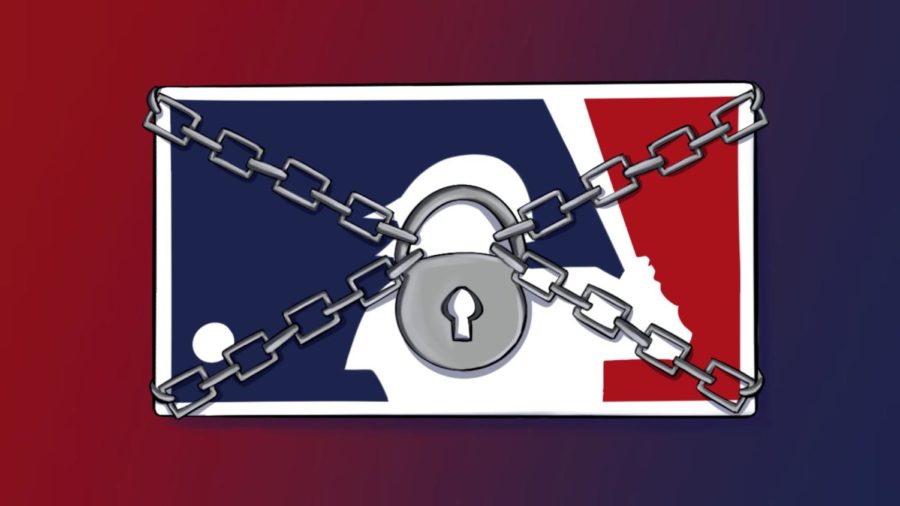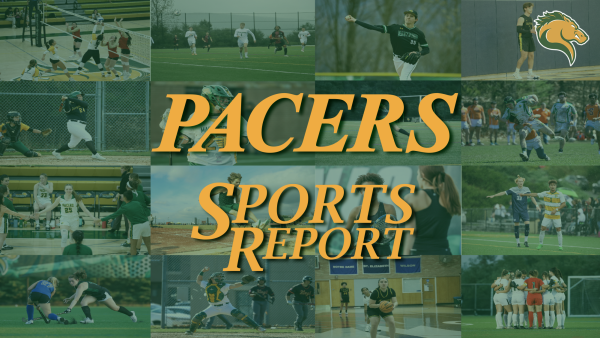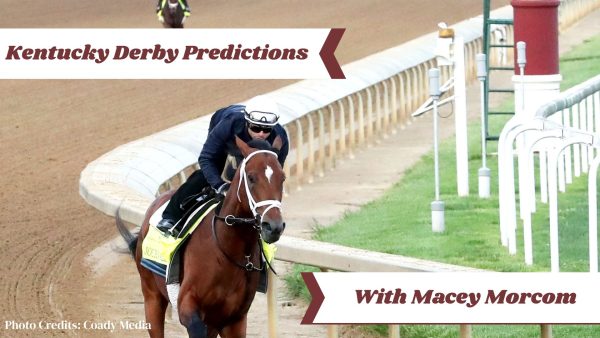COMMENTARY: The MLB needs to listen to its players
Photo credit/ Shania Nelson
Despite meetings continuing, no solution has been reached for the lockout to end.
For only the ninth time in major league baseball history, a complete work stoppage, or lockout, is currently underway. With a wide gap between owners and players, and fans caught in the middle, the upcoming season is a big question mark. The impending beginning of spring training, if it happens, should force the league to wake up and smell the roses.
The collective bargaining agreement (CBA) that was in place from 2016 to 2021 expired at midnight on December 2, initiating the lockout. The CBA is an agreement between major league baseball owners and the Major League Baseball Players Association (MLBPA), a union composed of major league players and legal representatives. In the current executive committee for the MLBPA, representatives for the players are Max Scherzer, Gerrit Cole, Marcus Semien, Francisco Lindor, Andrew Miller, Zack Briton, James Paxton, and Jason Castro. These players are elected to their positions every two years.
The other side of the lockout, the people in charge, are led by Major League Baseball Commissioner Rob Manfred. Manfred, who has been nothing short of loathed by fans and players, has not been willing to kowtow to the players’ union’s demands. What he’s really doing by taking this hardline stance is hurting himself, the players, the fans, and the game of baseball itself.
During a lockout, all work at the major league level stops. It’s not quite a strike, because the players aren’t currently working, but it is similar in the way it affects the league. Players have no contact with their teams during a lockout. This means no trade deals, contract signings, use of team facilities, nothing. The MLB website has even removed the pictures of the active players from its website. While it was for legal reasons, since the MLB can’t make a profit off of an athlete’s likeness during a lockout, it still seemed petty and cold to the outside world.
The issues the players want to change are arbitration, free agency, and revenue sharing. Since the emergence of analytics based rosters, the union says anyone not at the top of their game doesn’t get as many opportunities. Which, in theory, sounds like no big deal. But baseball is a delicate sport, and athletes can have hot or cold streaks. The MLB is denying second and third tier players a shot at improving or increasing their value when they become free agents. The union argues that players should be paid more in their prime years, when they are more likely to be at the top of their game.
Arbitration is when salary is determined for players who are not free agents but could not come to a contract deal. Players who have not hit their six years of service time get less money than those who go to arbitration. They have asked for the eligibility to be reduced to two years, so that players in their second and third years can be paid their fair share, even those who aren’t exceptional players (known as the 22%). The owners prefer a system where salaries are determined by analytics, but the players are not interested in using that system.
Free agency has been a nonstarter from the beginning of the lockout. This I actually agree with the owners on. The free agency system was put in place in 1976, and hasn’t changed since. After six years of service time, if a player is not signed to a contract extension or a new contract, he will become a free agent. This means he can sign with any team who wants him. The option the players offered was to reduce service time after a player turns 30. The owners rejected this though, and the MLBPA dropped the issue after their meeting on January 24.
Aside from the three issues the players have focused on, there is a lot on the line with this lockout. Commissioner Manfred’s acceptance of missing games and spring training for the 2022 season is disgusting. For Manfred, it’s all about the money. Frankly, he’s ruining baseball as commissioner. But that could be an article in itself. The owners need to give a little or they’ll end up with striking players, and no baseball this year at all.
Professional baseball players have not been silent during the lockout either, taking to social media to express their disdain. Jameson Taillon, a pitcher for the New York Yankees, underwent ankle surgery in the offseason. Due to the lockout, he cannot access the doctors at the Yankees’ facilities for physical therapy. Taillon tweeted jokingly, “Now that I’m in charge of my own PT, what should my first order of business be? I’m thinking I’m done with this boot. It can go.”
To keep the fans happy, the owners need to also implement better policies. A designated hitter in the National League would be nice. While the owners are gunning for an expanded postseason, they should drop that for now. It’s going to be hard to get the regular season off without a hitch, let’s not mess with the postseason until bigger issues are resolved.
The bottom line is that if Rob Manfred wants to keep baseball relevant, what he’s doing isn’t working. Listen to the players, listen to the fans, and make this season happen. Acting like a tyrant will not help you here. The owners may hold power over the players right now, but in the regular season the players will not hesitate to strike. Beyond that, in season or not, the fans are the ones paying Manfred and the owner’s salaries. Once you lose the fans, you lose, period. While obviously Manfred can’t let the players get everything they want, he needs to start somewhere, or there won’t be baseball this year.
Contact the writer: [email protected]

Emma is a senior Multimedia Journalism major and serves as both the Managing Editor and Opinion Editor for the Wood Word. She is also the main anchor for...










